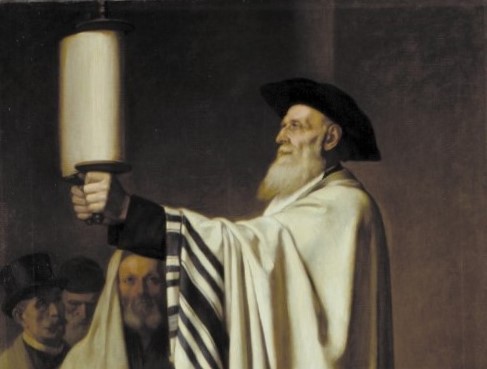
The Torah commands us to show reverence for the human body, even after the soul has departed. A body should be buried quickly, we are taught, lest its dignity be compromised. Leaving a body exposed is “a blasphemy of God” (Deut. 21:22–23).
However, in cases where the body is at risk of desecration — if there is a fear that robbers or enemies may abduct the remains for ransom — the Torah permits us to act in ways that, under ordinary circumstances, would seem disrespectful. To protect the body, one is allowed to conceal it in a sack and even sit upon it.
The Talmud in Berachot 18a teaches that these guidelines of respect shown to human remains also apply to Torah scrolls.
Like a Torah Scroll
This comparison, Rav Kook explains, is highly instructive.
Why do we honor Torah scrolls? We do so to instill within ourselves a love of Torah and a commitment to fulfill its words. We cherish these vessels of divine wisdom, recognizing that they facilitate our spiritual growth.
The same applies to the respect given to human remains. Honoring the body after death reminds us of the profound connection between the physical and the divine. This reverence underscores a vital truth: our bodies are instruments through which we pursue holiness. With our limbs and physical senses, we observe the Torah’s mitzvot, pursue its paths of purity and righteousness, and grow in wisdom and sanctity.
What emerges is a unified teaching: reverence for the human body, like that for Torah scrolls, strengthens our resolve to live a life aligned with the ways of God, which are “life to those who find them and healing to all their flesh” (Proverbs 4:22)
(Adapted from Ein Aya vol. 1 on Berachot 3:2)
Illustration image: ‘The Presentation of The Torah', Edouard Moyse (1860)





